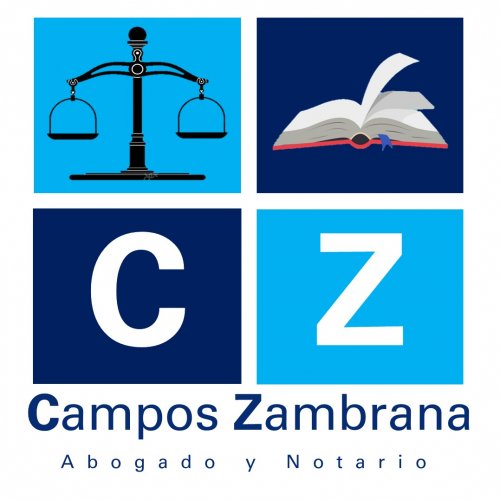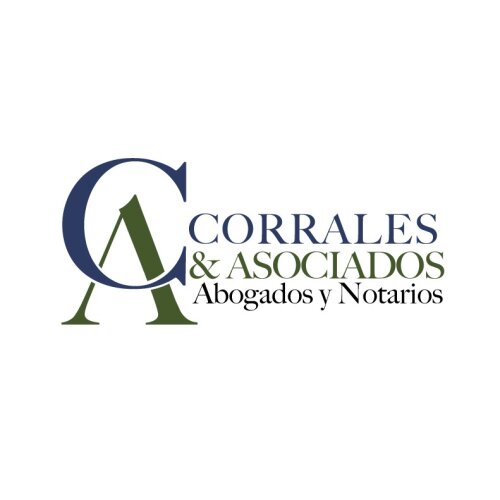Best Real Estate Lawyers in Nicaragua
Share your needs with us, get contacted by law firms.
Free. Takes 2 min.
Free Guide to Hiring a Real Estate Lawyer
Or refine your search by selecting a city:
List of the best lawyers in Nicaragua
About Real Estate Law in Nicaragua
Real estate law in Nicaragua is governed by various statutes, including the Civil Code and laws specifically addressing property ownership and transfer. Nicaragua's legal framework aims to ensure clarity in property rights, ownership, and contracts, with particular emphasis on ensuring that foreign investors can engage in real estate transactions securely. The country has been attractive to investors and expatriates due to its picturesque landscapes and relatively low-cost property options, making it an intriguing destination for real estate acquisitions.
Why You May Need a Lawyer
Engaging a lawyer when dealing with real estate in Nicaragua is crucial for several reasons. Common situations where legal assistance may be necessary include:
- Property Transactions: Buying or selling a property often involves complex legal documentation. A lawyer ensures that all contracts and deeds are drafted correctly and comply with local laws.
- Land Disputes: Boundary disputes or disagreements over land ownership can arise, necessitating legal resolution.
- Inheritance Issues: When inheriting property, legal expertise is essential to navigate succession laws and ensure rightful ownership transfer.
- Investment and Development: For developers or investors, understanding zoning laws and permits required for construction projects is fundamental.
- Foreign Investment: Foreign purchasers may need guidance to understand restrictions and legal processes for acquiring real estate in Nicaragua.
Local Laws Overview
The legal system in Nicaragua provides certain protections and guidelines that are imperative for real estate dealings:
- Foreign Ownership: Nicaragua allows foreigners to own property, though certain areas may have restrictions that require careful legal consideration.
- Registration: All real estate transactions must be registered at the Public Registry to ensure legal recognition of ownership.
- Formality of Contracts: Property transactions must be formalized by a legal contract, typically requiring ratification by a notary.
- Permitting: Construction and land development must comply with local zoning, environmental, and municipal regulations.
Frequently Asked Questions
What documents do I need to buy property in Nicaragua?
You will need identification, a purchase agreement, and possibly a power of attorney if representing another party. Conducting a property title search is also advisable.
Can foreigners buy property in Nicaragua?
Yes, foreigners can buy property in Nicaragua. However, consulting with a lawyer familiar with foreign investment can ensure compliance with all regulations.
What taxes apply to real estate transactions?
Transaction fees, including notary fees, property transfer taxes, and registration fees, are applicable. Your lawyer can clarify the exact amounts based on your transaction.
Is title insurance available in Nicaragua?
While not as common as in other countries, title insurance can be obtained, often through international insurers, to protect against potential title disputes.
How can I verify property ownership?
A thorough title search at the Public Registry will reveal the current registered owner and any existing liens or encumbrances on the property.
What is the process for resolving property disputes?
Property disputes can often be resolved through mediation, arbitration, or in court. Legal counsel is essential to navigate this process.
How do I deal with property inheritance in Nicaragua?
Legal assistance is necessary to ensure the proper transfer of property to heirs, guided by Nicaraguan succession laws.
Are there any restrictions on developing land?
Regulations vary depending on location and intended use. Consultation with both legal counsel and local authorities is crucial before development.
What rights do tenants have in Nicaragua?
Tenant rights are governed by Nicaraguan tenancy laws that detail issues such as lease termination, rental increases, and tenant protection.
How are disputes over property boundaries resolved?
Boundary disputes typically require a legal resolution with evidence such as cadastral maps and historical records. A qualified lawyer can assist with these proceedings.
Additional Resources
Consider the following resources for additional guidance:
- Nicaraguan Public Registry: For property title searches and registration.
- Local Law Firms: Look for firms specializing in real estate law.
- InvestNicaragua: An informational resource about investment opportunities and regulations in Nicaragua.
- Nicaraguan Ministry of Development, Industry, and Trade (MIFIC): Offers insights into legal requirements for enterprise and trade.
Next Steps
If you're seeking legal advice in real estate, the following steps can help you move forward:
- Identify Your Needs: Clarify what type of legal assistance you require, whether it’s for buying/selling, resolving disputes, or another matter.
- Research Lawyers: Look for reputable lawyers or law firms in Nicaragua that specialize in real estate law.
- Schedule Consultations: Arrange meetings with potential legal advisors to discuss your case and evaluate compatibility.
- Prepare Documentation: Gather all necessary documents related to your real estate matter to provide your lawyer with comprehensive information.
- Follow Legal Advice: Once retained, follow your lawyer’s recommendations and ask questions to ensure you understand the process.
Lawzana helps you find the best lawyers and law firms in Nicaragua through a curated and pre-screened list of qualified legal professionals. Our platform offers rankings and detailed profiles of attorneys and law firms, allowing you to compare based on practice areas, including Real Estate, experience, and client feedback.
Each profile includes a description of the firm's areas of practice, client reviews, team members and partners, year of establishment, spoken languages, office locations, contact information, social media presence, and any published articles or resources. Most firms on our platform speak English and are experienced in both local and international legal matters.
Get a quote from top-rated law firms in Nicaragua — quickly, securely, and without unnecessary hassle.
Disclaimer:
The information provided on this page is for general informational purposes only and does not constitute legal advice. While we strive to ensure the accuracy and relevance of the content, legal information may change over time, and interpretations of the law can vary. You should always consult with a qualified legal professional for advice specific to your situation.
We disclaim all liability for actions taken or not taken based on the content of this page. If you believe any information is incorrect or outdated, please contact us, and we will review and update it where appropriate.
Browse real estate law firms by service in Nicaragua
Nicaragua Attorneys in related practice areas.
Browse real estate law firms by city in Nicaragua
Refine your search by selecting a city.











